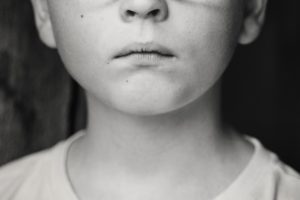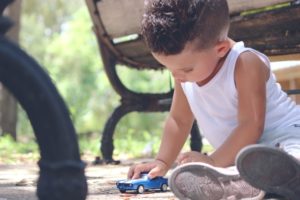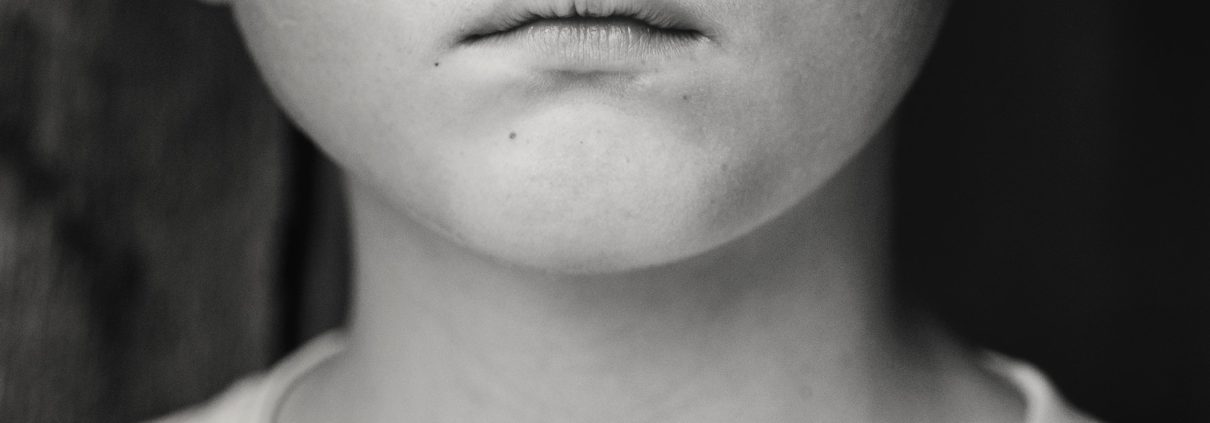9 Signs of Sexual Abuse in Children to Watch Out For
It’s been a watershed season of exposing men and women who committed sexual assault and harassment. Businesses are taking legal actions to terminate employees or pull contracts indefinitely. If the #Metoo movement teaches us anything, it’s that sexual assault and abuse is often silenced and that there’s strength in numbers.
 Parents never want to hear these heartbreaking words uttered from their child’s mouth, “I’ve been sexually abused.” Children are often under the care of other adults at school, church, a friend’s sleepover and even under their own roof. In these seemingly harmless settings, horrendous acts are carried out.
Parents never want to hear these heartbreaking words uttered from their child’s mouth, “I’ve been sexually abused.” Children are often under the care of other adults at school, church, a friend’s sleepover and even under their own roof. In these seemingly harmless settings, horrendous acts are carried out.
9 Signs of Sexual Abuse in Children to Watch Out For
Parents must be vigilant to monitor who their children interact with on a daily basis. Because sexual abuse is often a confusing and paralyzing experience, children may not verbally express what’s happening to them. But if a child is being abused, it’s likely you will see the following signs.
1. Increased Fear and Anxiety
Fear is one of the biggest hallmarks of a child who has suffered abuse. Children can become hypervigilant, constantly on the alert. You may see mounting fear and anxiety as the specific time of day approaches when the abuse normally occurs or if you mention inviting the abuser over.
2. PTSD Symptoms
Post-Traumatic Stress Disorder is not only reserved for military veterans returning from combat overseas. The same symptoms are present in children who have suffered abuse. Panic attacks occur when certain “triggers” bring feelings of immediate stress.
 Triggers could be a certain smell like the cologne the abuser wears, people who sound like the abuser, or certain sights that bring flashbacks. Another form of PTSD in children is having disturbing dreams or problems getting a good night’s sleep. Nightmares become prevalent and memories of the trauma can disrupt their concentration at school.
Triggers could be a certain smell like the cologne the abuser wears, people who sound like the abuser, or certain sights that bring flashbacks. Another form of PTSD in children is having disturbing dreams or problems getting a good night’s sleep. Nightmares become prevalent and memories of the trauma can disrupt their concentration at school.
3. Mood Changes
Unreasonable crying or sudden excessive crying that wasn’t present before are expressions of children suffering from abuse. On the other end of the spectrum, children can have angry outbursts and get frustrated easily spouting out hurtful words to those around them.They might withdraw from adults in the belief that every person wants to harm them or they may become hostile toward those in authority who neglected to protect them.
Because these times of abuse were often out of their control, they will grow up wanting to control everything in their lives. Eventually, children numb their feelings and become detached and emotionally absent. They self-protect by creating an impenetrable wall around their hearts.
A point can even be reached where they disassociate from the abuse altogether by either diminishing the effects of the abuse in their lives or never admitting that the abuse happened to them. Children who experienced sexual abuse are more likely to grow up into teenagers who contemplate suicide, have self-inflicted wounds, and show signs of depression.
4. Guilt and Shame
Children find ways to blame themselves for the abuse. Guilty thoughts invade their minds like, “I should have said something to someone else,” or, “I was aroused so does that mean I wasn’t abused?”
 The abuser often reinforces this message telling the child that somehow the child made the abuser touch them. It’s a tug-of-war in the mind for children in this situation. They know something feels wrong, but the mixed messages, instilled fear, and false responsibility can create turmoil in their minds.
The abuser often reinforces this message telling the child that somehow the child made the abuser touch them. It’s a tug-of-war in the mind for children in this situation. They know something feels wrong, but the mixed messages, instilled fear, and false responsibility can create turmoil in their minds.
5. Fear of Intimacy and Closeness
Intimate relationships can be a challenge after enduring abuse. Although children may still embody an outgoing personality, they learn how to keep people at arm’s length to prevent further harm. Physical contact, which is often terrifying, may cause them to lash out at someone who innocently tries to give a hug.
Other children become overly clingy needing constant physical and verbal affection. Children that have experienced abuse find it hard to know the difference between appropriate displays of physical affection and inappropriate sexual touch.
6. Sexuality
Sexually abused children usually grow up not wanting to have sex at all or view having sex with multiple people as the only way to receive touch and attention. This ends up creating a bigger web of pain in their lives.
 Children who have been hypersexualized from assault may make sexual comments to other students or have an advanced knowledge about sex. Of course, in today’s world children are often exposed to movies that are not age-appropriate and they pick up the terminology. But if a five-year-old girl can describe certain adult acts in detail, this should set off alarms.
Children who have been hypersexualized from assault may make sexual comments to other students or have an advanced knowledge about sex. Of course, in today’s world children are often exposed to movies that are not age-appropriate and they pick up the terminology. But if a five-year-old girl can describe certain adult acts in detail, this should set off alarms.
Some children who have been abused by someone of the same gender end up confused about their sexual orientation. Due to confusing (maybe even somewhat pleasurable) physiological responses related to their abuse, they may silently wonder whether or not they are actually gay.
Some people may try to reduce their distinctive gender features by cutting their hair, hiding their breasts, eating more food to gain weight and becoming unattractive, or neglecting basic hygiene routines in order to repel people.
7. Alarming Forms of Creative Expression
Children love to play. It’s a normal part of childhood. However, if the dolls are not just playing mommy and daddy, but participating in strictly mommy and daddy activities it is a glaring red flag.
Often creative expression becomes a safe outlet for children to be honest without verbally admitting to the pain forced upon them. Journal writing, social media posts, poems, and pictures can all tell a story that’s been silenced inside. Today, teenagers swarm to social media to share their fight with depression or struggle with suicidal thoughts.
8. Not Behaving Appropriately for Their Age
Of course, some little girls want to imitate their moms by dabbing on some lipstick or painting their cheeks with blush when they see their moms getting ready for the day. Wearing more revealing clothing or always wanting to put on perfume, makeup and doing their hair could possibly point to past abuse.
Some older children will revert to their younger behaviors like wetting the bed or sucking their thumb. These aren’t always signs of trauma, but these signs merging with some of the others mentioned here are good indicators of abuse.
If you hear of older friends being mentioned frequently begin to investigate. Yes, there are good mentors and influences out there, but someone showing an unhealthy amount of attention toward your underage child requires some additional attention from you. Normally, children form friendships with kids around their same age.
9. Turning to Alcohol and Drugs
Alcohol can be used to not only numb pain from the past but make someone feel alive at the same time. Drugs and alcohol are a way to cope with the suppressed feelings and distressing thoughts. Drug and alcohol use can be a common coping mechanism for those who have experienced trauma in order to deal with disturbing thoughts.
If you are seeing unusual signs like these in the children around you, don’t ignore it – report it. Call your local CPS Office or the National Child Abuse Hotline at 1-800-4-A-CHILD.
Finding a Place of Healing
Christian counseling Newport Beach is just one way to begin a journey of healing and freedom. The Lord comes to heal the brokenhearted and to bind up our wounds (Psalm 147:3). If child abuse is a part of your story, Christian counseling Newport Beach offers a safe place to experience wholeness. Freedom is found by bringing things in the darkness into the light. Will you let someone help you today?
“Child of Light,” courtesy of Matheus Bertelli, pexels.com, CC0 License; “Silent,” courtesy of Kat Smith, pexels.com, CC0 License; “Wounded,” courtesy of Min An, pexels.com, CC0 License; “Play time,” courtesy of pixabay.com, pixels.com, CC0 License




